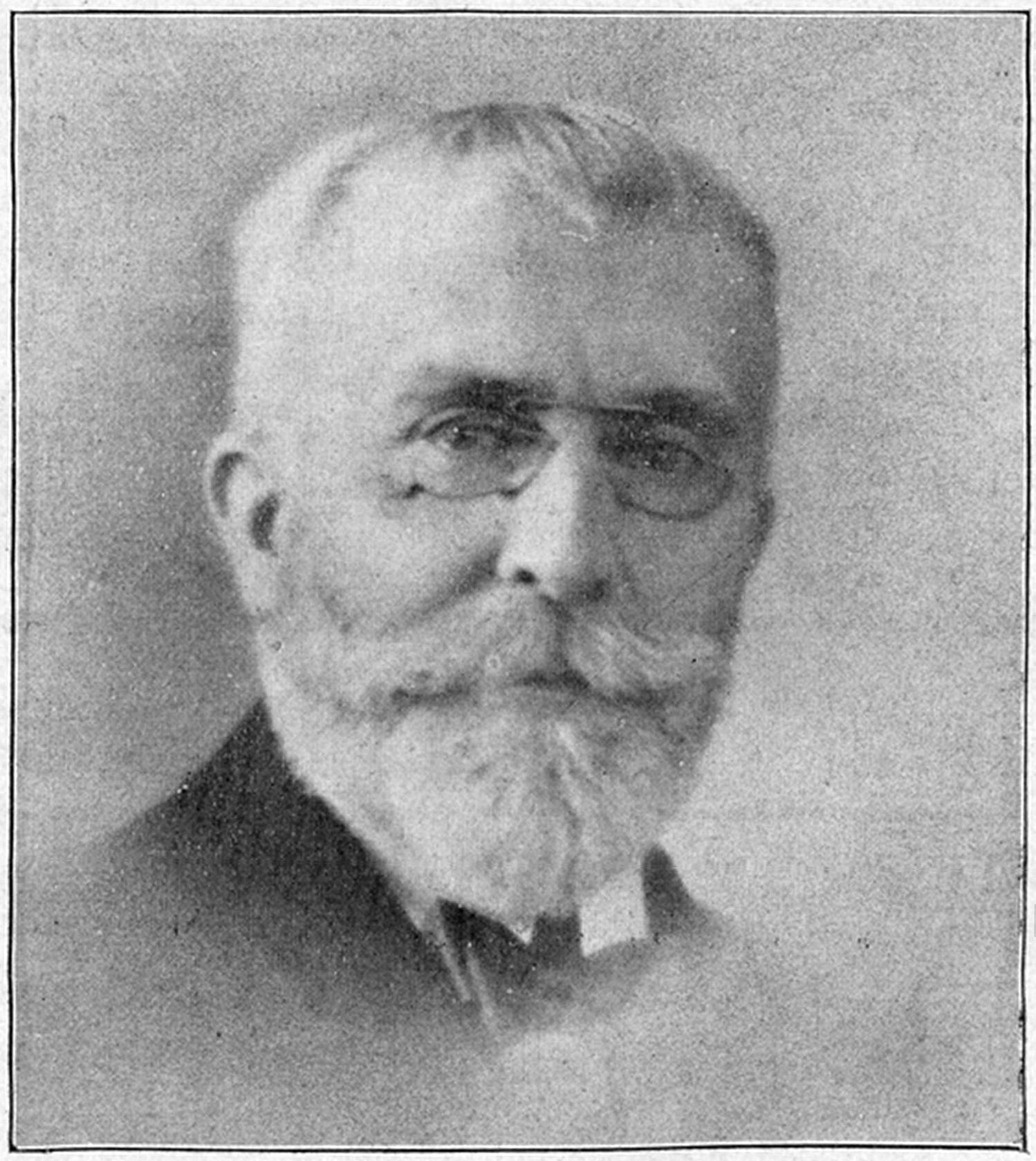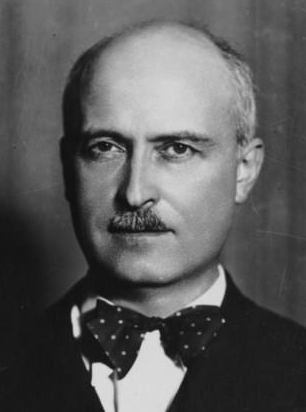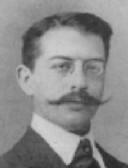|
Paul Vidal
Paul Antonin Vidal (16 June 1863 – 9 April 1931) was a French composer, conductor and music teacher mainly active in Paris.Charlton D. Paul Vidal. In: ''The New Grove Dictionary of Opera.'' Macmillan, London and New York, 1997. Life and career Paul Vidal was born in Toulouse, and studied at the conservatoires there and in Paris, under Jules Massenet at the latter. He won the Prix de Rome in 1883, one year before Claude Debussy. On 8 January 1886, in Rome, Vidal and Debussy performed Franz Liszt's ''Faust Symphony'' at two pianos for Liszt himself, an after-dinner performance that Liszt apparently slept through. The following day they played Emmanuel Chabrier's '' Trois valses romantiques'' for Liszt. Vidal conducted at the Opéra National de Paris where he made his first appearance directing ''Gwendoline'' in 1894 (he had coached the singers for the Paris premiere in 1893), and later conducted the first performance of '' Ariane'' and the Paris premieres of ''Roma'' by Massenet ... [...More Info...] [...Related Items...] OR: [Wikipedia] [Google] [Baidu] |
Don Giovanni
''Don Giovanni'' (; K. 527; Vienna (1788) title: , literally ''The Rake Punished, or Don Giovanni'') is an opera in two acts with music by Wolfgang Amadeus Mozart to an Italian libretto by Lorenzo Da Ponte. Its subject is a centuries-old Spanish legend about a libertine as told by playwright Tirso de Molina in his 1630 play '' El burlador de Sevilla y convidado de piedra''. It is a ''dramma giocoso'' blending comedy, melodrama and supernatural elements (although the composer entered it into his catalogue simply as ''opera buffa''). It was premiered by the Prague Italian opera at the National Theater (of Bohemia), now called the Estates Theatre, on 29 October 1787. ''Don Giovanni'' is regarded as one of the greatest operas of all time and has proved a fruitful subject for commentary in its own right; critic Fiona Maddocks has described it as one of Mozart's "trio of masterpieces with librettos by Da Ponte". Composition and premiere The opera was commissioned after the succes ... [...More Info...] [...Related Items...] OR: [Wikipedia] [Google] [Baidu] |
Catulle Mendès
Catulle Mendès (22 May 1841 – 8 February 1909) was a French poet and man of letters. Early life and career Of Portuguese Jewish extraction, Mendès was born in Bordeaux. After childhood and adolescence in Toulouse, he arrived in Paris in 1859 and quickly became one of the protégés of the poet Théophile Gautier. He promptly attained notoriety with the publication in the '' La Revue fantaisiste'' (1861) of his ''Roman d'une nuit'', for which he was condemned to a month's imprisonment and a fine of 500 francs. He was allied with Parnassianism from the beginning of the movement and displayed extraordinary metrical skill in his first volume of poems, ''Philoméla'' (1863). His critics have noted that the elegant verse of his later volumes is distinguished rather by dexterous imitation of different writers than by any marked originality. The versatility and fecundity of Mendès' talent is shown in his critical and dramatic writings, including several libretti, and in his novels a ... [...More Info...] [...Related Items...] OR: [Wikipedia] [Google] [Baidu] |
Théodore De Banville
Théodore Faullain de Banville (14 March 1823 – 13 March 1891) was a French poet and writer. His work was influential on the Symbolist movement in French literature in the late 19th century. Biography Banville was born in Moulins in Allier, Auvergne, the son of a captain in the French navy. His boyhood, by his own account, was cheerlessly passed at a ''lycée'' in Paris; he was not harshly treated, but took no part in the amusements of his companions. On leaving school with but slender means of support, he devoted himself to letters, and in 1842 published his first volume of verse (''Les Cariatides''), which was followed by ''Les Stalactites'' in 1846. The poems encountered some adverse criticism, but secured for their author the approbation and friendship of Alfred de Vigny and Jules Janin. From then on, Banville's life was steadily devoted to literary production and criticism. He printed other volumes of verse, among which the ''Odes funambulesques'' (1857) received unstint ... [...More Info...] [...Related Items...] OR: [Wikipedia] [Google] [Baidu] |
Incidental Music
Incidental music is music in a play, television program, radio program, video game, or some other presentation form that is not primarily musical. The term is less frequently applied to film music, with such music being referred to instead as the film score or soundtrack. Incidental music is often background music, and is intended to add atmosphere to the action. It may take the form of something as simple as a low, ominous tone suggesting an impending startling event or to enhance the depiction of a story-advancing sequence. It may also include pieces such as overtures, music played during scene changes, or at the end of an act, immediately preceding an interlude, as was customary with several nineteenth-century plays. It may also be required in plays that have musicians performing on-stage. History The use of incidental music dates back at least as far as Greek drama. A number of classical composers have written incidental music for various plays, with the more famous e ... [...More Info...] [...Related Items...] OR: [Wikipedia] [Google] [Baidu] |
Joseph Hansen (dancer)
Joseph Hansen (8 March 1842 in Antwerp – 27 July 1907 in Asnières) was a Belgian dancer and choreographer. He was ''maître de ballet'' ( ballet master) of the Paris Opera Ballet from 1887 to 1907.Wild 2012, p. 321; Guest 2006, p. 66. Pitou 1990, p. 638, states he was balletmaster from 1887 to 1896, when he was replaced by Ladam, but continued to choreograph and produce ballets there until his death in 1907. Life Ballet director at the Théâtre de la Monnaie in Brussels from 1865 à 1871, he was its ballet master from 1871 to 1875, putting on the first production of ''Coppélia'' on 29 November 1871. He held the same role at the Opéra de Paris during the 1875–1876 season. He was in London in 1877–1878, then worked at the Bolshoi Theatre in Moscow from 1879 to 1882, where in 1880 and 1882 he put on his own version of ''Swan Lake'' by Tchaikovsky (1880) and directed Russia's first production of ''Coppélia'' (1882). Original choreography * ''Une fête nautique'' (Brus ... [...More Info...] [...Related Items...] OR: [Wikipedia] [Google] [Baidu] |
Opera
Opera is a form of theatre in which music is a fundamental component and dramatic roles are taken by singers. Such a "work" (the literal translation of the Italian word "opera") is typically a collaboration between a composer and a librettist and incorporates a number of the performing arts, such as acting, scenery, costume, and sometimes dance or ballet. The performance is typically given in an opera house, accompanied by an orchestra or smaller musical ensemble, which since the early 19th century has been led by a conductor. Although musical theatre is closely related to opera, the two are considered to be distinct from one another. Opera is a key part of the Western classical music tradition. Originally understood as an entirely sung piece, in contrast to a play with songs, opera has come to include numerous genres, including some that include spoken dialogue such as '' Singspiel'' and '' Opéra comique''. In traditional number opera, singers employ two styles of ... [...More Info...] [...Related Items...] OR: [Wikipedia] [Google] [Baidu] |
Vladimir Fédorov
Vladimir Fédorov (5 August 1901, Chernihiv – 9 April 1979, Paris) was a French musicologist, librarian, and composer of Russian birth. He studied with André Pirro at the Schola Cantorum de Paris and studied composition privately with Paul Vidal. He was president of the International Association of Music Libraries from 1962 until 1965 and from 1968 until 1971. Writings *"Sur un manuscrit de Moussorgskii: les différentes éditions de ses Lieder", ''RdM'', xiii (1932), 10–23 *"Les années d'apprentissage de Moussorgsky", ''ReM'', nos.137–40 (1933), 196–204 *''Moussorgsky: biographie critique'' (Paris, 1935) *"Le théâtre lyrique en URSS", ''Polyphonie'', i (1947–8), 78–83 *"Paroles dites, paroles chantées", ''Polyphonie'', ii (1948), 73–80 *"Notes sur la musicologie médiévale", ''Polyphonie'', iii (1949), 30–37 *"Peut-on parler d'une école bourguignonne de musique au XVe siècle?", ''Les cahiers techniques de l'art'', ii (1949), 29–36 *"Bach en France", ''R ... [...More Info...] [...Related Items...] OR: [Wikipedia] [Google] [Baidu] |
Jacques Ibert
Jacques François Antoine Marie Ibert (15 August 1890 – 5 February 1962) was a French composer of classical music. Having studied music from an early age, he studied at the Paris Conservatoire and won its top prize, the Prix de Rome at his first attempt, despite studies interrupted by his service in World War I. Ibert pursued a successful composing career, writing (sometimes in collaboration with other composers) seven operas, five ballets, incidental music for plays and films, works for piano solo, choral works, and chamber music. He is probably best remembered for his orchestral works including ''Divertissement'' (1930) and ''Escales'' (1922). As a composer, Ibert did not attach himself to any of the prevalent genres of music of his time, and has been described as an eclectic. This is seen even in his best-known pieces: ''Divertissement'' for small orchestra is lighthearted, even frivolous, and ''Escales'' (1922) is a ripely romantic work for large orchestra. In tandem with h ... [...More Info...] [...Related Items...] OR: [Wikipedia] [Google] [Baidu] |
Marc Delmas
Marc Marie Jean Baptiste Delmas (28 March 188530 November 1931) was a French Expressionist composer and writer. Life and career Marc Delmas was born in Saint-Quentin, Aisne, France, and studied at the Conservatoire de Paris with Xavier Leroux and Paul Vidal. He won the Prix Rossini in 1911 with ''Anne Marie'', Second Grand Prix de Rome with his cantata ''Le et la Fée Poète'' and later the Prix Cressent and Prix Ambroise-Thomas. In 1914 Delmas and Marcel Dupré were tied for first prize on the first ballot of the Prix de Rome, and Camille Saint-Saëns was called in to break the tie. He voted for Dupré, and Delmas took second prize. Delmas taught music in Paris, and was a biographer of noted musicians. He took part in the choral movement and participated in the Conseil Superieur de la Musique Populaire. He died in Paris at the age of 46. Works Delmas was a prolific composer, known primarily for his stage works, but he was also author of choral, solo and chamber music. Select ... [...More Info...] [...Related Items...] OR: [Wikipedia] [Google] [Baidu] |
Lili Boulanger
Marie Juliette "Lili" Boulanger (; 21 August 189315 March 1918) was a French composer and the first female winner of the Prix de Rome composition prize. Her older sister was the noted composer and composition teacher Nadia Boulanger. Biography Early years As a Parisian-born child prodigy, Boulanger's talent was apparent at the age of two, when Gabriel Fauré, a friend of the family, discovered she had perfect pitch. Her parents, both of whom were musicians, encouraged their daughter's musical education. Her mother, Raissa Myshetskaya (Mischetzky), was a Russian princess who married her Paris Conservatoire teacher, Ernest Boulanger (1815–1900), who won the Prix de Rome in 1835. Her father was 77 years old when she was born and she became very attached to him. Her grandfather Frédéric Boulanger had been a noted cellist and her grandmother Juliette a singer. Boulanger accompanied her ten-year-old sister Nadia to classes at the Paris Conservatoire before she was five, sho ... [...More Info...] [...Related Items...] OR: [Wikipedia] [Google] [Baidu] |






